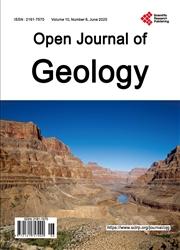Research on Thin Layer Structure Identification and Sedimentary Facies of Middle and Deep Layers Based on Reflection Coefficient Inversion—By Taking Dongying Formation of CFD Oilfield in Bohai Offshore as an Example
引用次数: 1
Abstract
The sand layer B of Dongying Formation of CFD oilfield in Bohai offshore belongs to the middle deep layer of buried hill overlap deposit. Its reservoir distribution has the characteristics of large burial depth, thin thickness and rapidly lateral change. Because of low resolution of seismic data and overlying sand layer. It is difficult to identify and interpret the structure of sand layer accurately. The uncertainty of structure and reservoir restricts the fine development of B sand layer. In order to identify the top surface of reservoir effectively. The seismic data are processed by using the reflection coefficient inversion method. The results show that the inversion resolution of reflection coefficient is significantly higher than that of original data. The top surface of sand layer B and its overlying sand layer can be well identified and traced. Carrying out structural interpretation of B sand layer based on reflection coefficient inversion data and the microstructure and the formation tip extinction point are implemented. Based on the constraint of new interpretation level, the sedimentary facies plane distribution of B sand layer is described and make prediction of dominant reservoir development area in detail combining with sedimentary paleogeomorphology, along layer attribute section and limited drilling data. The research shows that the study area is mainly from the northwest material sources, the slope belt in the northwest is close to the lake shoreline with a gentle slope and shallow water depositional environment, which is located on the main transport and deposition channels. The shallow water gentle slope landform is suitable for forming large-area sand bar deposition, mainly composed of underwater distributary channel and debouch bars facies, which is the dominant reservoir development area. The research conclusion guides the deployment and implementation of the development well location effectively.基于反射系数反演的中深层薄层结构识别及沉积相研究——以渤海CFD油田东营组为例
渤海CFD油田东营组B砂层属于中深层埋藏型叠合矿床。其储层分布具有埋深大、厚度薄、横向变化快的特点。由于地震资料分辨率低和上覆砂层。准确识别和解释砂层的结构是很困难的。构造和储层的不确定性制约了B砂层的精细发育。为了有效地识别储层顶面。利用反射系数反演方法对地震资料进行了处理。结果表明,反射系数反演分辨率明显高于原始数据。可以很好地识别和追踪砂层B的顶面及其上覆砂层。根据反射系数反演资料对B砂层进行构造解释,并对其微观结构和地层尖端消光点进行了解释。基于新解释水平的约束,结合沉积古地貌、沿层属性剖面和有限的钻探资料,描述了B砂层的沉积相平面分布,并对优势储层开发区进行了详细预测。研究表明,研究区主要来自西北部物质来源,西北部斜坡带靠近湖岸线,具有平缓的斜坡和浅水沉积环境,位于主要的运输和沉积通道上。浅水缓坡地貌适合形成大面积砂坝沉积,主要由水下分流河道和冲沙坝相组成,是主要的储层发育区。研究结论有效地指导了开发井位的部署和实施。
本文章由计算机程序翻译,如有差异,请以英文原文为准。
求助全文
约1分钟内获得全文
求助全文

 求助内容:
求助内容: 应助结果提醒方式:
应助结果提醒方式:


